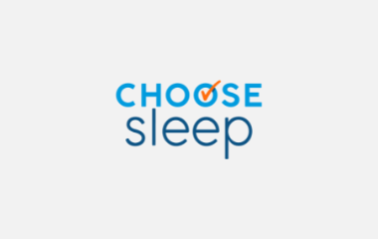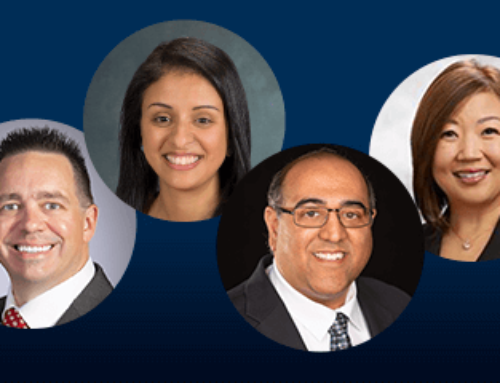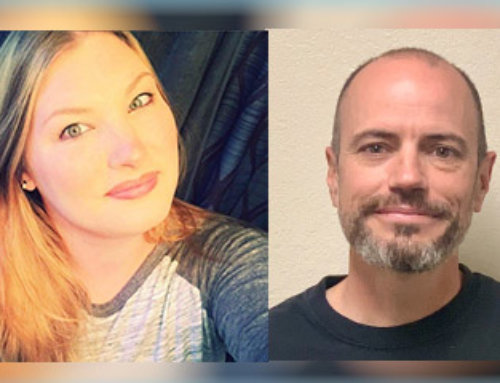Are you a trainee or an early career psychologist? Or are you an experienced psychologist seeking to expand your practice and improve outcomes among your patients? Consider choosing the specialty of sleep psychology.
Sleep medicine is a fascinating, multidisciplinary field that reflects a variety of clinical backgrounds and talents. Sleep psychology is a subspecialty of sleep medicine that focuses on the psychological and behavioral components of sleep disorders and their treatments. This is a cutting edge, exciting, and rewarding career with a wide scope of clinical practice and varied professional settings including academic medical centers, private practices, group practices, Veterans Administration (VA), consultative environments, and more.
To provide a better sense of sleep psychology, this spotlight focuses on the careers and work of two sleep psychologists at different phases in their careers. Dr. Spencer Dawson and Dr. Ed Haraburda both started their own thriving private practices in the Midwest US. They highlight the complexity of sleep and highlight how sleep disorders such as insomnia can be woven with other psychiatric disorders such as anxiety, depression, PTSD, and other psychological problems. They actively collaborate with Sleep Disorders Centers in their areas and are valuable resource for their communities.
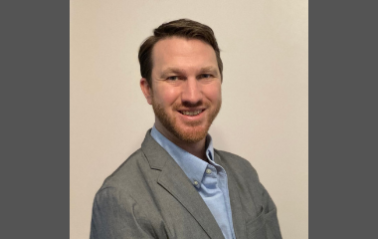
Spencer Dawson, PhD
https://www.bettersleepbloomington.com/
AASM: Why did you choose sleep psychology?
Dr. Spencer Dawson: I became involved in sleep research before I started graduate school, working for several years as a research assistant at the University of Michigan Depression Center Sleep and Chronophysiology Lab. For me, graduate school was a way to continue in the sleep field, and the lab faculty helped me make that transition, suggesting mentors, reaching out on my behalf, and writing letters of recommendation. I accepted an offer to earn my PhD working with Dick Bootzin at the University of Arizona. While there, I of course received training in broad field clinical psychology, but I always kept any eye toward sleep problems across all the settings I worked in.
AASM: Which aspect of sleep psychology are you most passionate about?
Dr. Spencer Dawson: One of the most important aspects of being a sleep psychologist is the integration of expertise in psychology and in sleep. Our patients often have complex problems in which their sleep problems are woven with anxiety, depression, and other psychological problems. Being able to identify these factors and account for them in case conceptualization and treatment is invaluable.
AASM: Tell us a bit about your work.
Dr. Spencer Dawson: I have an independent practice in Bloomington, Indiana specializing in Behavioral Sleep Medicine. Since I opened my practice during the COVID-19 pandemic, I have been seeing patients exclusively via telehealth. This has allowed me to see patients throughout the state of Indiana. Not surprisingly, most of my patients are seeking treatment for insomnia. I also have had relatively uncommon experience of working with people with hypersomnia from the recently published pilot study of CBT-H led by Jason Ong. This is a very different sort of approach from CBT-I, in that CBT-H does not directly target hypersomnia, but instead is intended to improve the lives of people living with hypersomnia as an adjunct to standard medical care.
AASM: Do you work with sleep centers? What does that look like?
Dr. Spencer Dawson: I am fortunate to have developed connections with physicians at some of the major sleep disorders centers in Indiana. I receive referrals for CBT-I and I in turn refer patients who require assessment and treatment that is beyond my scope of practice, such as PSG, MSLT, and CPAP.
AASM: What are the top 2-3 lessons you have learned so far about how to increase your visibility within the sleep psychology community?
Dr. Spencer Dawson: Building and maintaining relationships with those you already have contact with is very important. I simply would not be where I am today without my mentors and peers. Of course, engagement with professional societies and networking at conferences makes a big difference. But what has been especially effective for me has been engaging in listserv discussions and posting on Twitter. In particular, discussing cases posted to listservs has allowed me to both puzzle through interesting questions, share information, and develop a reputation as someone who has meaningful expertise.
AASM: What do you wish you knew about private practice before launching this phase of your career?
Dr. Spencer Dawson: Of course, private practice requires creating your own infrastructure, scheduling, etc. Much of that work is straightforward and relatively concrete. The biggest change from my clinical work at every institution I’ve worked before is getting new patient referrals. Fortunately, I have received some guidance from others more senior in the field, much to my benefit.
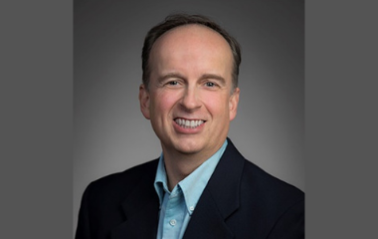
Ed Haraburda, PhD
Ed.Haraburda@psychologicalsleepservices.com
AASM: Why did you choose sleep psychology?
Dr. Ed Haraburda: My work with clients with PTSD led me into sleep psychology. About 9 years ago, I was introduced to cognitive-behavioral therapy for insomnia and was pleasantly surprised about how effective it was with my patients, many of whom had severe sleep issues even if their PTSD was being effectively addressed. I liked it so much I volunteered to be one of the CBT-I training consultants in the Department of Veterans Affairs. Even though I enjoy helping people with their PTSD issues, working on sleep issues is significantly less taxing as a provider and helping someone sleep better helps them in so many ways.
AASM: Which aspect of sleep psychology are you most passionate about?
Dr. Ed Haraburda: It feels great to be able to help people lower their sleep related anxiety as I help them finally make sense of their sleep issues and give them the tools and understanding to address them. I like to help in areas of greatest need. Given the shortage of sleep psychologists and growing numbers of people with sleep issues, sleep psychology is just such an area.
AASM: Tell us a bit about your work.
Dr. Ed Haraburda: I have been a psychologist for over 20 years and have had my private practice, Psychological Sleep Services, since 2012. While my primary work focuses on treating insomnia, due to my experience in other areas, I often end up treating co-occurring conditions such as anxiety, depression, and post-traumatic stress disorder. Since getting my diplomate in behavioral sleep medicine several years ago, I have been treating other sleep issues as well such as circadian rhythm disorders and CPAP adherence.
AASM: Do you work with sleep centers? What does that look like?
Dr. Ed Haraburda: I regularly receive referrals from several sleep centers in central Ohio area. They of course are very familiar with the components of CBT-I (and other sleep issues) but don’t have the time to fully assist their patients in implementing the recommendations. Typically, they spend no more than 15 minutes per appointment, and this isn’t enough typically to do CBT-I. Often they will make recommendations to their patients and when they are unable or unwilling to follow their guidance, the providers send me a referral by fax along with relevant treatment records. I am currently working on improving my feedback to the providers and have asked them what they would like to know about their patients’ care with me.
AASM: What are the top 2-3 lessons you have learned so far about how to increase your visibility within the sleep psychology community?
Dr. Ed Haraburda: I have found attending trainings through the Society of Behavioral Sleep Medicine to be helpful as well as attending annual Sleep meeting – however with these events being virtual for the time being, this has not been as effective in connecting with others. I also reached out to local sleep centers to seek out referrals and while doing this came across another sleep psychologist in the area. A very helpful thing for me has been joining a state provider organization which gathers together providers and interfaces with insurance companies in a collective way – members are encouraged to refer to providers in the organization and this has led to many referrals.
AASM: What do you wish you knew about private practice before launching your own business?
Dr. Ed Haraburda: I wish I knew more about the business side of private practice and about the importance of forming your own professional support/referral network. I highly recommend the book “Business Basics for Private Practice, A Guide for Mental Health Professionals” by Dr. Anne D. Bartolucci – the author is a sleep psychologist. I recently came across the book and found it very helpful.
AASM: Anything else to add?
Dr. Ed Haraburda: I continue to be surprised at the small numbers of psychologists seeking out this great specialty. I have found the client issues to have more variety (which is a good thing to me) than I thought they would. It is rare to have someone only experiencing insomnia – medical and psychiatric co-morbidities are the norm. I like this also since it allows me to keep my other skills sharp. If you would rather focus on sleep, it is very easy to do that and refer for the other conditions. Even if you don’t want to focus solely on sleep, it is also a great specialty to incorporate into your practice, especially since people respond better to treatments for other conditions like depression, if they receive effective care for their sleep issues. I have also found it to be a nice way to start treatment since it tends to be short-term, highly effective, and not emotionally demanding of clients. Once you help someone with sleep, they are often more willing to address other issues. In case you can’t tell, I love my work as a sleep psychologist!





